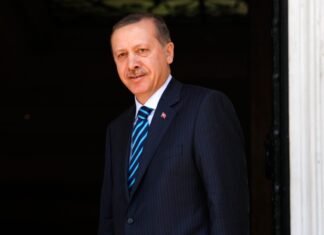In a shocking turn of events, Roman Starovoit, the Russian Minister of Transport, was found shot in his car shortly after being dismissed from his position by President Vladimir Putin. This incident raises numerous questions about the circumstances surrounding his removal from office and the prevailing political climate in Russia.
Starovoit was appointed as the Minister of Transport just a year ago, a relatively short tenure in a position that typically expects longer terms. His sudden ousting by Putin has sparked widespread speculation about the reasons behind it. Some analysts suggest that Starovoit’s policies or decisions may not have aligned with the Kremlin’s strategic interests, prompting his dismissal. In an environment where loyalty is paramount, any deviation from the prescribed path can have dire consequences.
The transport sector is critical to Russia, given its vast geographical expanse and the need for efficient logistics. Starovoit was entrusted with overseeing various aspects of this crucial sector, making his role significant not just for the economy but also for military logistics and national security, especially amid ongoing geopolitical tensions. His unexpected removal raises concerns about the stability and direction of Russia’s transport policies during a tumultuous period for the country.
Moreover, the nature of his death adds an eerie dimension to the situation. Finding a high-ranking official deceased under such circumstances inevitably invites comparisons to other cases of political figures in Russia who have met untimely fates. History has shown that the line between political maneuvering and personal safety can often blur in the backdrop of Russian politics, where dissent is rarely tolerated, and loyalty is strictly enforced.
Speculation is rife concerning the motivations for his removal and subsequent assassination. Some reports indicate that internal power struggles within Putin’s administration could have played a role. As the Kremlin grapples with numerous challenges, including economic sanctions, international isolation, and a military conflict, internal cohesion among political elites is more crucial than ever.
Starovoit’s assassination mirrors a pattern seen in the lives of several other Russian officials who have faced similar fates over the years. The underlying message seems clear: loyalty to the Kremlin is imperative, and any signals of dissent or failure to adhere to party lines can lead to severe repercussions. This incident serves as a chilling reminder for those still in power, signaling the lengths to which the government may go to maintain control.
Furthermore, his death is likely to provoke a broader response within the transport ministry and the government in general. Other officials may feel compelled to align their actions even more closely with Kremlin directives, fearing that any visible failure could lead to their own downfall. This environment of fear and suspicion can stifle innovative approaches and risk-taking that are necessary for the modernization of the transport sector.
As the investigation into Starovoit’s death unfolds, the international community is watching closely. The implications of this event extend beyond Russia’s internal politics, affecting perceptions of security and stability in a country already facing significant scrutiny on the global stage. The tragic fate of Roman Starovoit thus not only highlights the precarious nature of political life in Russia but also serves to foreshadow the potential fallout that might emerge in the coming months.






